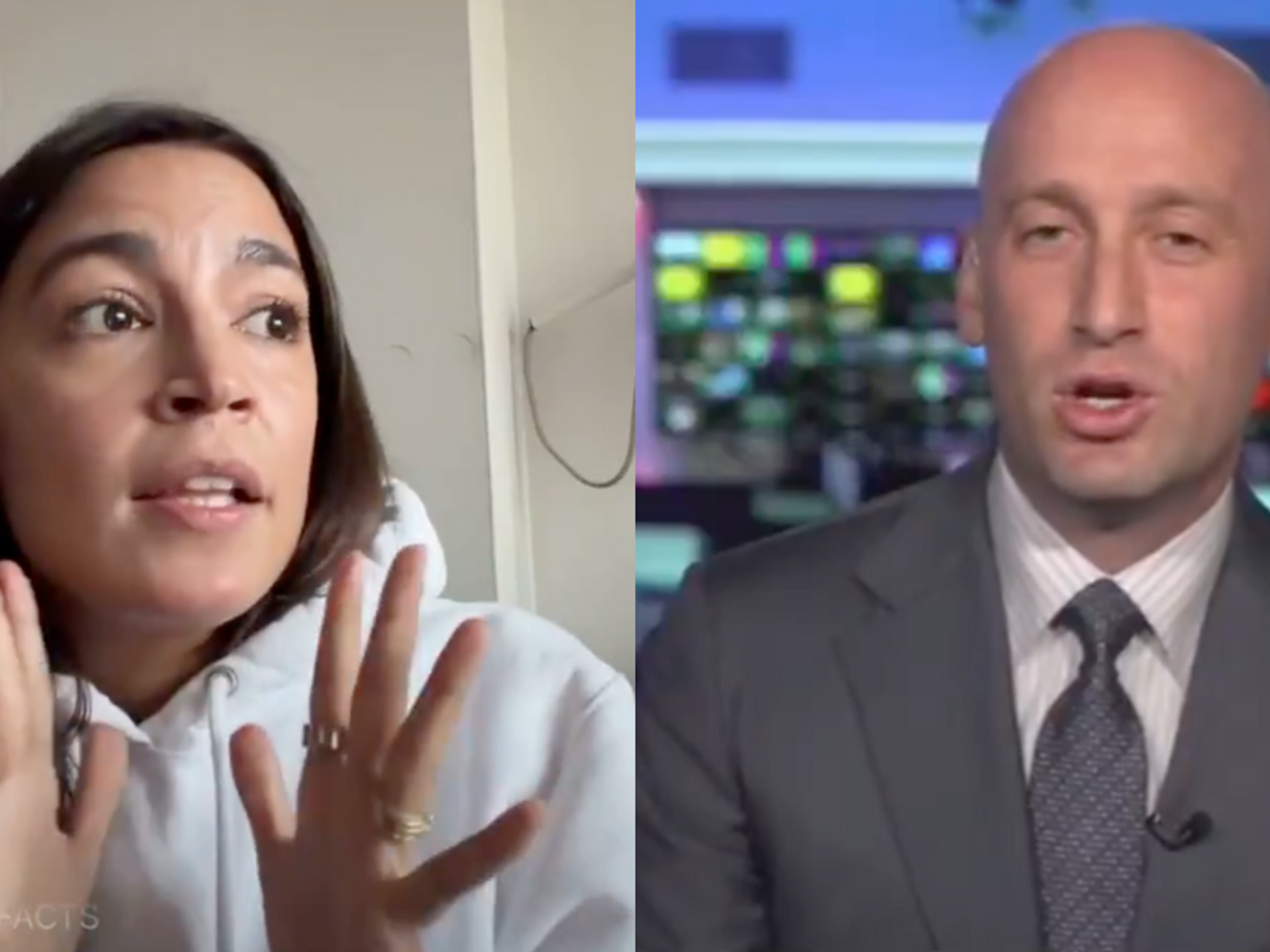As the so-called "Schumer Shutdown" lingers, attention has turned not to solutions or real leadership, but to yet another spectacle courtesy of Congresswoman Alexandria Ocasio-Cortez (D-NY). Once again, instead of offering measured commentary or a substantive policy proposal, AOC has become the center of a self-inflicted controversy—this time by taking aim at someone’s height.
And as the dust settles, it's clear that the congresswoman’s attempt at edgy political banter has only served to expose the deep contradictions within her brand of progressive politics.
It all started over the weekend during one of AOC’s frequent Instagram sessions. The target this time was White House Deputy Chief of Staff Stephen Miller, a longtime conservative figure who has been vocally critical of left-leaning judges and their efforts to block President Trump’s agenda.
Rather than engage with Miller’s arguments or policies, Ocasio-Cortez chose to mock his physical appearance.
“I’ve never seen that guy in real life,” she said to her followers. “But he looks like he’s, like, 4’10. And he looks like he is angry about the fact that he’s 4’10. And he looks like he is so mad that he is 4’10 that he’s taken that anger out at any other population possible.”
What was meant to be a clever jab quickly snowballed into a full-fledged controversy. Conservatives immediately called out the comments for what they were—blatant body-shaming. But more surprising was the reaction from within AOC’s own progressive base.
Many of her supporters, including disability advocates and social justice activists, accused her of perpetuating harmful stereotypes about height and masculinity. The backlash came swiftly and harshly, with critics pointing out the hypocrisy of someone who regularly speaks out against body-shaming engaging in it herself.
Stephen Miller, for his part, laughed off the insult during a Monday appearance on The Ingraham Angle, stating that he is in fact 5’10”, not the 4’10” caricature painted by AOC. But the real damage had already been done—on AOC’s end.
Instead of issuing a straightforward apology, the congresswoman attempted a baffling spin. Taking to social media, she claimed that her comments were misunderstood. According to AOC, she wasn’t referencing Miller’s actual height, but rather his “spiritual height.”
“I want to express my love for the short king community,” she wrote in an attempted clarification. “I don’t believe in body shaming. I am talking about how big or small someone is on the inside.”

From there, her explanation veered into the absurd. Citing an unnamed example, she explained, “I have no idea how tall Andrew Tate is. No idea at all. But that guy looks to me like 5’3.
Whereas, physically, men of smaller stature can come across — they are spiritually six-foot. If you’re a good dad, if you stand with women, if you’re not belittling immigrants, you’re like 6’3 spiritually.”
The attempt to reframe the insult as a metaphor for moral character was met with eye rolls across the political spectrum. Critics accused AOC of trying to dodge responsibility for a clear misstep by retreating into ambiguous and contradictory language.
Even some of her staunchest defenders admitted the “spiritual height” excuse didn’t hold up.
What makes the episode even more ironic is AOC’s long history of complaining about how her own body and appearance are treated in political discourse.
Back in 2021, following the uproar over her controversial “Tax the Rich” dress at the Met Gala, she lamented the “relentless policing” of her body and appearance. She called out media outlets, critics, and opponents for focusing on her looks instead of her ideas.
Now, fast-forward to 2025, and the same congresswoman is drawing laughs—and outrage—for doing to others exactly what she has spent years protesting. It’s the kind of double standard that seems to follow members of the progressive left, who often demand absolute adherence to evolving standards of political correctness while exempting themselves from the same scrutiny.
And this isn’t just about height jokes. It’s about the broader issue of authenticity in public leadership. AOC has built her brand around fighting for inclusivity, body positivity, and social justice.
But when push comes to shove—when the cameras are off and the Instagram filter is on—those ideals seem to take a backseat to political performance and cheap shots.
Of course, everyone makes mistakes. But what continues to frustrate critics and former fans alike is the refusal to admit fault. Rather than saying, “I went too far,” AOC opted for a lecture on metaphorical measurements of character. It’s the kind of response that feels tone-deaf at best, and manipulative at worst.
This incident also serves as a reminder of the pitfalls of “performative politics,” where virtue signaling often replaces actual governance. AOC has proven herself an expert at harnessing the attention economy—using viral moments to dominate headlines.
But as this latest scandal shows, not all attention is good attention. When politicians become more known for their feuds, tweets, and TikToks than for their legislative achievements, trust in leadership erodes.
Meanwhile, real issues—like the ongoing government shutdown that originally prompted this wave of commentary—get pushed to the side. Americans are looking for solutions, not distractions.

They want leaders who will lower costs, improve healthcare, address education, and enhance public safety. Petty insults about someone’s appearance don’t move the needle on any of those fronts.
What could have been a teachable moment about decorum and personal accountability in public discourse has instead turned into a case study in how not to handle criticism. AOC’s “short king” saga will likely blow over in a few news cycles, but the stain of hypocrisy remains—and so does the growing skepticism from within her own base.
The moral of the story? Words matter. Especially when you’ve built your entire political identity on the premise that words—and how we use them—can change the world.
In this case, a flippant remark did change something. It pulled back the curtain, however briefly, on the contradictions at the heart of modern political branding. And in doing so, it left even some of AOC’s supporters wondering if the voice they once championed is beginning to echo hollow.


-1750049524-q80.webp)

